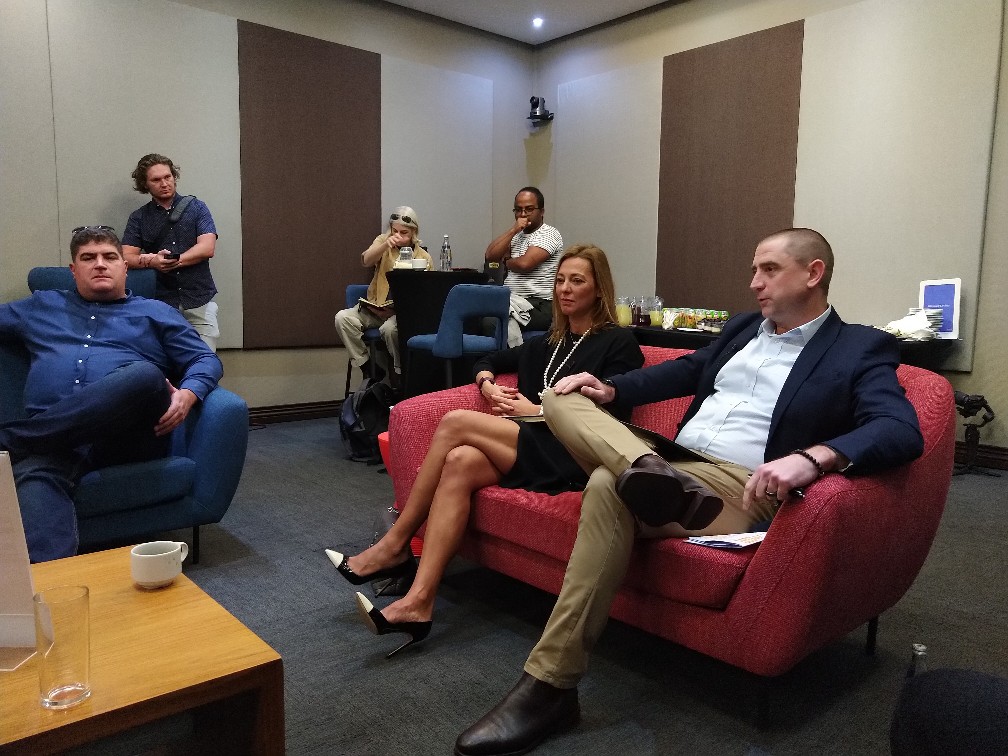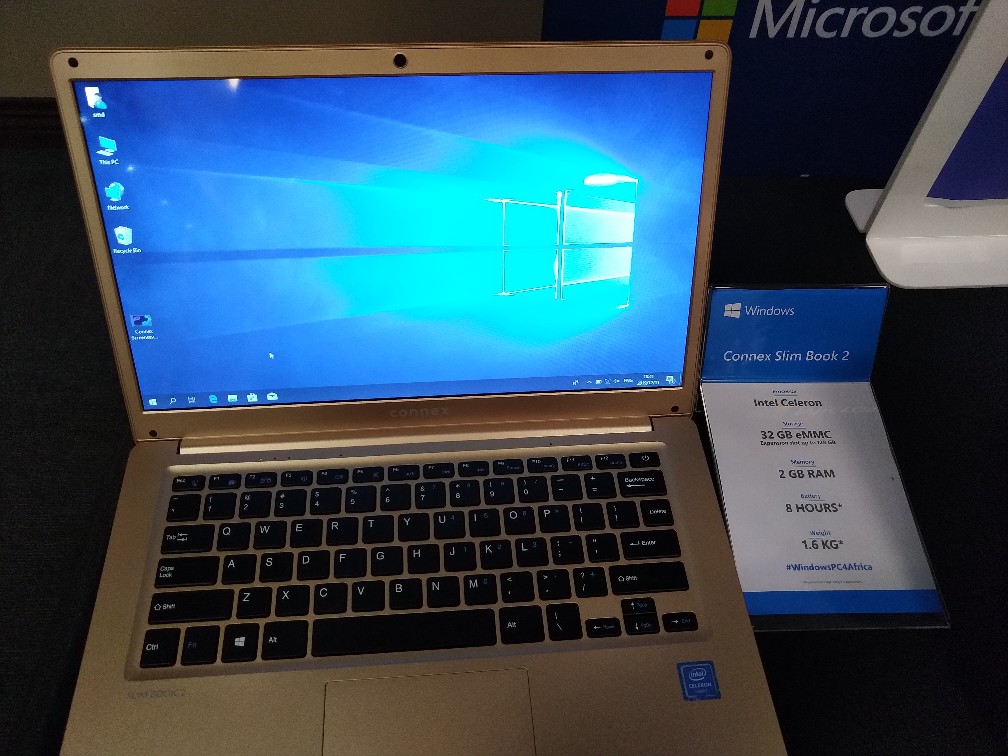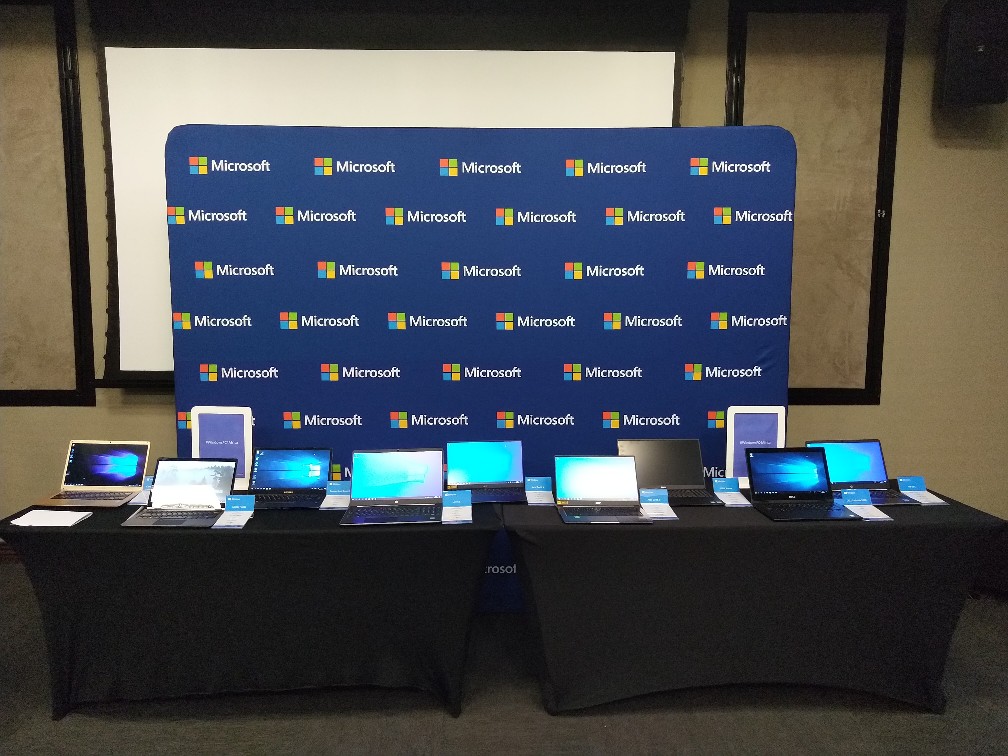In a recent Twitter poll conducted by Techpoint, 56% of the 201 respondents said they cannot afford to use genuine software on their computers, while 24% said they always use genuine software. Nine per cent said they didn’t know how to check for genuine software, while 8% claimed they had no idea fake software existed.
Do you pay for, and use, genuine software on your laptop/computer?
— Techpoint Africa (@TechpointAfrica) December 10, 2019
Even with its small and homogenous sample size, the survey quite mirrors the reality in Africa.
“Around five million PCs are shipped into Africa’s consumer segment every year. But by our estimates, only about one-third (1.5 million) include genuine software,” said Deniz Ozen, Regional General Manager, Consumer and Device Sales, Microsoft Middle East & Africa.
Ozen said this during a press conference held on Wednesday at the Microsoft South Africa headquarters in Bryanston, Johannesburg.
We’re live at @MicrosoftSA for a major announcement from Microsoft. Stick with us. #WindowsPC4Africa pic.twitter.com/pBltrDJgTo
— Techpoint Africa (@TechpointAfrica) December 11, 2019
“This is not a good enough number and that is what we want to change.”
Improving the number of PCs with genuine software is important to Microsoft for a number of reasons. First, the tech giant controls over 80% of the continent’s PC market, according to StatCounter. Increasing the prevalence of genuine software is in its best interests.
Source: StatCounter Global Stats – OS Market Share
Second, Africa’s emerging market potential is unparalleled. According to the IMF, by 2030 a majority of the global workforce will be from Africa. Most of the people who will make up this workforce are currently students who need affordable computers to work on projects. Also, most of their jobs will be provided by SMEs and startups, which also rely on affordable computers to get work done.
This is why Microsoft has launched the ‘Windows PC Affordability in Africa Initiative’.
‘’Through the Windows PC Affordability in Africa Initiative, we aim to educate consumers on the risks of using pirated software, and to work with our PC ecosystem partners including Acer, Asus, Dell, Intel, Lenovo, Mustek and SMD to make Genuine Windows 10 PCs more affordable across Africa,” said Bradley Hopkinson, Vice President, Consumer & Device Sales, Microsoft.

As reflected in the earlier survey, affordability of genuine software remains a key challenge for many PC users. But there is also a challenge with lack of awareness, not just of the existence of pirated software, but also the risks they pose.
It is usual practice for sources of pirated software to embed malicious code into them. This way, they can gain unfettered access to user data, spy on them through their webcam or use them as botnets in denial of service attacks. Particularly for businesses, this could prove costly.
“Every year, businesses spend over $360 billion combating malware resulting from pirated software,” Ozen highlights.
At the press conference representatives from some of Microsoft’s PC partners were in attendance. On display were the results of many years of discussions with partners to come to an agreement on similar pricing that wouldn’t disrupt the ecosystem. These included an entry-level Connex Slim Book 2, that Microsoft says will retail for around $120, and a high-end Core i5 Acer Swift 2 that should retail for $500.

Commenting on the Initiative, Dave Brooke, Vice President, Client Solutions Group, Dell Technologies, CEE & MERAT said:
“It’s easy to take devices for granted in the digital revolution. But without people, there is no revolution and without the right devices, they can’t participate in it. The Windows PC Affordability in Africa Initiative can help close the digital divide and put that power into the hands of those whose lives will be transformed the most.”
But as commodities, laptops can only retail below a certain price so, the emphasis on ‘affordability’ may be felt more on the high end than entry-level. The entry-level is more important in a predominantly mobile-first/mobile-only continent.
Nevertheless, given the success of the initiative in similar markets including Southeast Asia, India and China, Hopkinson is confident they can also drive a higher percentage genuine Windows PCs in Africa. Already, there are teams on ground moving “as quickly as we can”.
“Over the last 2 to 3 months, we are already seeing a 20% increase in uptake in countries like Nigeria and Kenya,” Hopkinson explains, “In some North African markets like Tunisia and Morocco, we are actually getting more success with 60% and 70% penetration. Our goal is to get to over 50% overall as soon as possible.”
To be clear, the Initiative currently focuses only on devices running the Windows 10 operating system. However, Hopkinson says they are open to extending it to the Microsoft Office suite, and other popular productivity software that small businesses rely on, in due course.
Existing users of Windows PCs are currently also not catered for. According to Ozen, the average lifecycle of a PC is about 3 to 5 years, so the hope is that without enough awareness from the Initiative, users will choose genuine devices on their next purchase. It is essentially a long-term play.
The devices can be purchased from Microsoft-accredited OEMs and distributors and their partners.






